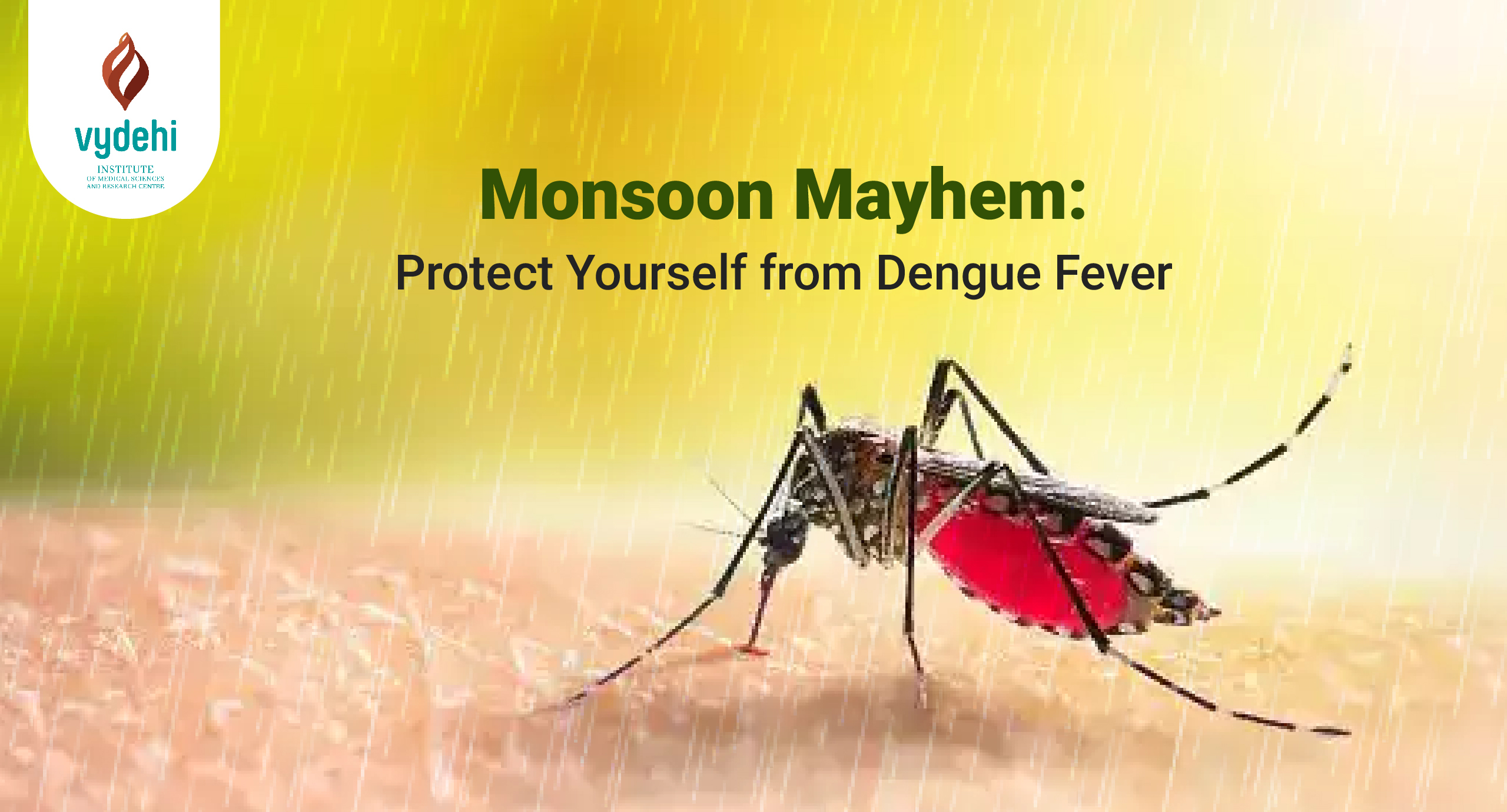Take Control of Your Health: Prevent Dengue Now
The monsoon season, while bringing relief from the scorching heat, also ushers in a host of health concerns, with dengue fever being a primary threat. As a leading healthcare provider, Vydehi Institute of Medical Sciences and Research Center is committed to safeguarding your health. Let’s explore effective strategies to protect yourself and your family from this mosquito-borne disease during the rainy season.
Understanding Dengue Symptoms and Prevention
Dengue, caused by the dengue virus, is transmitted through the bite of an infected Aedes mosquito. Common dengue symptoms include high fever, severe headache, body aches, joint pain, nausea, vomiting, and skin rash. While most cases are mild, it’s crucial to seek immediate medical attention if you suspect dengue fever.
To prevent dengue infection, it’s essential to implement effective dengue prevention tips. These include:
- Mosquito control: Eliminate potential breeding grounds for mosquitoes by removing stagnant water. Employ dengue mosquito control methods like using mosquito repellents containing DEET, wearing protective clothing, and installing mosquito nets.
- Hygiene: Maintain good personal hygiene by washing hands frequently and consuming clean food and water.
- Early detection: Be aware of dengue symptoms and seek medical advice promptly if you experience any concerning signs.
Home Remedies for Dengue Relief
While home remedies cannot cure dengue fever, they can help alleviate discomfort. However, it’s important to consult a doctor for proper diagnosis and treatment. Some common dengue fever home remedies include:
- Staying hydrated by drinking plenty of fluids.
- Getting sufficient rest to aid recovery.
- Using paracetamol for fever and pain relief (avoid aspirin and ibuprofen).
Dengue Vaccination: A Protective Shield
While there’s no complete safeguard against dengue, the dengue vaccination can offer some protection. However, its effectiveness varies, and it’s essential to consult a healthcare professional to determine if vaccination is suitable for you.
By incorporating these dengue prevention measures into your routine and seeking timely medical advice, you can significantly reduce your risk of contracting dengue.
At Vydehi Institute of Medical Sciences and Research Center, our team of experts is dedicated to providing comprehensive healthcare solutions. If you have any concerns about dengue or require medical assistance, please don’t hesitate to contact us.
Disclaimer: This blog post is for informational purposes only and should not be considered medical advice. Always consult with a healthcare professional at Vydehi Hospital or any other healthcare center for any health concerns.
Frequently Asked Questions
1. What are 5 ways to prevent dengue?
Ans: Prevent dengue by eliminating mosquito breeding grounds, using mosquito repellents, wearing protective clothing, installing mosquito nets, and maintaining proper hygiene.
2. What are 7 warning signs of dengue?
Ans: Watch for high fever, severe headache, body aches, joint pain, nausea, vomiting, and skin rash. These could be early warning signs of dengue.
3. How to reduce and prevent the spread of dengue during the monsoon season?
Ans: Control mosquitoes by removing stagnant water, using repellents, and wearing protective clothing. Cleanliness is key. Consult a doctor if symptoms persist.
4. What is the best treatment for dengue fever?
Ans: There’s no specific treatment for dengue. Focus on symptom relief like paracetamol for fever and pain. Stay hydrated and get plenty of rest. Severe cases require hospitalization.

 Emergency Number
Emergency Number
Thank you for outlining the early signs of dengue. It’s vital to seek medical advice promptly to avoid severe complications like dengue without fever cases.
Insightful post on dengue prevention! The focus on early symptom detection and medical advice is crucial for timely treatment.